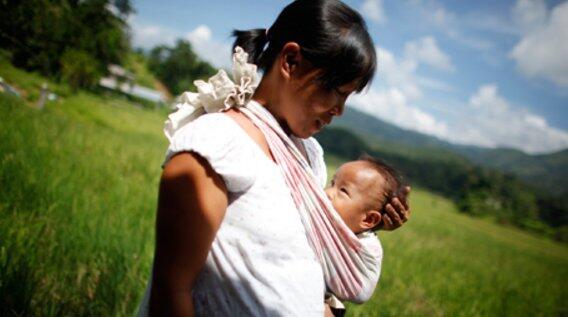The Executive Order number 12 issued by Philippine President Rodrigo Duterte supporting the full implementation of the Responsible Parenthood and Reproductive Health (RPRH) Law is a major push for the government’s family planning programme, which has been hindered by various challenges to the implementation of the landmark law.
The United Nations Population Fund, UNFPA, remains fully committed to supporting the government and civil society partners on this effort.
UNFPA has been working with local governments to ensure that access to quality reproductive health services, including family planning, will be available especially for the poorest and disadvantaged communities who need these services most.
“The full and immediate implementation of the RPRH Law is critically important for the government to deliver on its family planning program, which has been identified by President Duterte as one of his priorities when he assumed office,” said Klaus Beck, UNFPA Country Representative.
The EO contributes to the Philippines’ commitment to fulfilling the 2030 Sustainable Development Agenda and its Sustainable Development Goals (SDGs), whose aim is ultimately to leave no one behind, especially the most vulnerable.
“The RPRH Law is a fundamental component to a comprehensive approach to poverty alleviation and human development in the Philippines, and is critical to realizing reproductive rights, including the right to choose freely and responsible if and when to have children, reducing maternal mortality and the realization of the development goals on health, gender and poverty,” Mr. Beck added.
The President’s order will lend new momentum to the implementation of the RPRH Law as it demonstrates the highest level of support to the measure.
The EO also clearly defines the role of various government units in enforcing the law and provides clear instructions on the funding needed to implement it, as well as the accountability mechanism to ensure that the RPRH Law and the EO are implemented.
All of this will boost RPRH law implementation. Concerns remain, however, with one key challenge to the full implementation of the law being the Philippine Supreme Court's temporary restraining order on the registration and certification of a list of contraceptives.
The order has been in effect for 1.5 years now and UNFPA hopes that it can be lifted as soon as possible in order to avoid adverse impact on the supply of contraceptives in the country.
UNFPA also hopes that the EO will form part of a comprehensive and holistic effort by the government and people of the Philippines toward the achievement of the 2030 Agenda for Sustainable Development based on the protection and fulfillment of the human rights of all the people of the Philippines.



